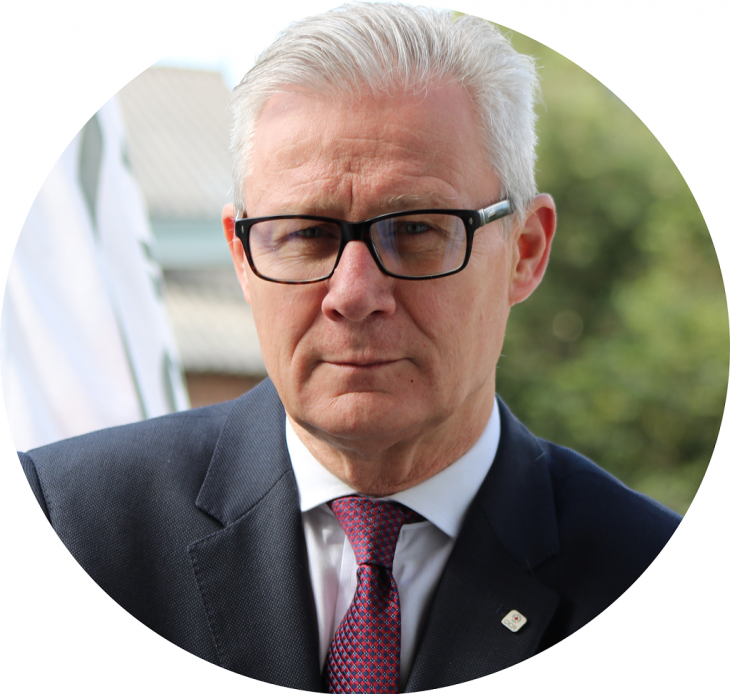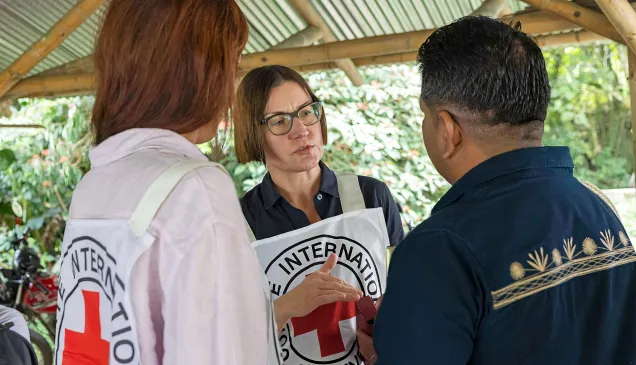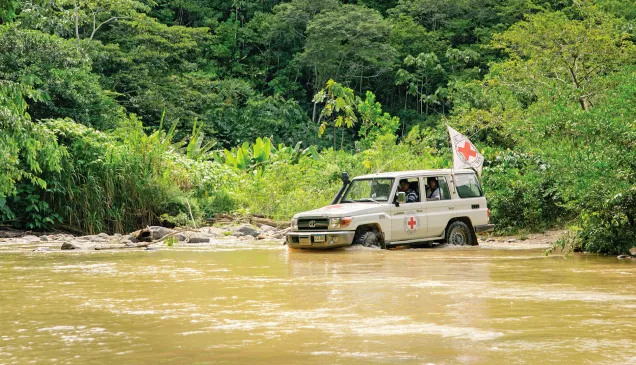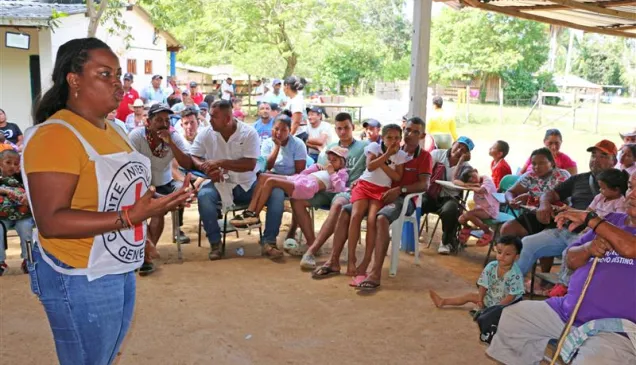Colombia: Between war and indifference
Humanitarian challenges in 2019

Christoph Harnisch
Head of the ICRC delegation in Colombia
The humanitarian situation in Colombia is becoming increasingly complex as a result of the conflicts developing in the country's most remote and impoverished areas. For many inhabitants of these regions, peace never arrived and, in many cases, security conditions have seriously deteriorated. "In Tumaco, post-conflict is more difficult than the conflict itself," I was recently told. Unfortunately, this is not the only area in which the situation has worsened.
The reality is that in Colombia one cannot speak of post-conflict. Currently, there is not one, but at least five armed conflicts in the country: four of them between the Colombian State and organized armed groups, namely the National Liberation Army (ELN), the People's Liberation Army (EPL), the Gaitanista Self-Defence Forces of Colombia (AGC) and structures of the FARC-EP Eastern Bloc that did not join the peace process, and the fifth between the ELN and the EPL.
These armed conflicts, in addition to the violence perpetrated by different groups in the countryside and in the cities, continue to affect the day-to-day life of millions of Colombians.
Furthermore, border dynamics that have clear potential for conflict and the humanitarian drama to which migrants are subject, which will probably worsen in 2019, are a serious cause for concern. The coexistence of migration and conflict is a complicated equation that undoubtedly exposes extremely vulnerable people to violence that no human being should experience.
We cannot speak of post-conflict: There are currently at least five armed conflicts in Colombia
In 2019, we will continue to work to overcome the lack of response to enforced disappearances. The relatives of over 80,000 missing people in the country are still waiting for information, which comes in dribs and drabs, more than two years after the creation of the Missing Persons Search Unit was announced.
I would like to strongly emphasize that enforced disappearance is not a tragedy of the past but an unjustifiable act that is still happening today.
I can say it openly: all arm bearers in the country have used and still use enforced disappearance to sow fear and to control populations and territories. They must understand, once and for all, that in a war not everything goes.
Respecting international humanitarian law is not an option. Therefore, the search for missing persons as a result of armed conflicts and the prevention of new disappearances constitute an unconditional obligation for all the groups that are or were part of these conflicts.
For the situation to change, the commitment and will of the State, of armed groups and of civil society as a whole are needed. Colombia can, and should, be a country in which fear and violence do not dominate the daily lives of millions of its inhabitants.



